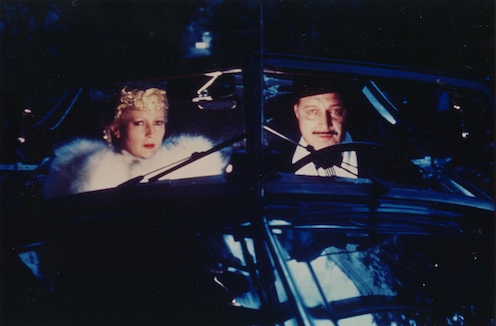Malou

Full Description
Hannah is obsessed by the memory of her mother, Malou, a mysterious woman. Through a rich sequence of flashbacks we follow Malou's transformations from French maid to nightclub chanteuse, and from the wife of a wealthy German Jew to a woman whose final graceful descent into booze leaves her in a Buenos Aires slum. Hannah's search for her mother becomes a search for her own identity. International Film Critics Prize, 1983 Cannes Film Festival; First Prize, San Sebastian Film Festival.
Filmmaker Bio(s)
Jeanine was born in 1943 in Buenos Aires. She studied at the Journalism school there from 1961-1964, and has lived in Germany since 1964, when she received the German Academic Exchange Service (DAAD) Scholarship to study at the Institute for Film at the Academy of Art and Design in Ulm. Jeanine is an editor and freelance journalist, and has written film reviews since 1970. She is also a lecturer for film at the Adult Education Center (VHS) in Ulm and at the Goethe Institut in various countries.
Jeanine's first feature film, MALOU (1980), which she wrote and directed, won the International Film Critics' prize FIPRESCI in Cannes, 1st prize at the Chicago Film Festival, and 1st prize at the San Sebastian Film Festival. Other feature films she has written and directed include DIE VERLIEBTEN (1987), LA AMIGA (1988), which won, amongst other things, the 1989 German film prize, and AMIGOMIO (1995), which won the 1990 Saarland script prize. Her documentary films include IM LAND MEINER ELTERN (1981), which won the Golden Ducat at the 1981 Mannheim Film Week, DIE KUMMELTURKIN GEHT (1985), which won, amongst other things, the 1985 German Critic's Prize, and DESEMBARCOS - ES GIBT KEIN VERGESSEN (1989), which won, amongst other things, the 1990 City of Strasbourg Prize. She has participated in numerous festivals with her films or as a jury member.
In 1990, Jeanine became professor of Television/Film at the Academy of Media Arts, specializing in directing for documentary and feature films. She recived the "Artists Award for Femail Directors of NordrhineWestfalia 2000". The Jury mentioned the "strength and clarity of her images that are telling human fate in a precise yet compassionate and poetic way, leaving great impact on the audience".
Director(s)
Country(ies)
Language(s)
w/English Subtitle
Release Year
Festival Year(s)
Running Time
95

